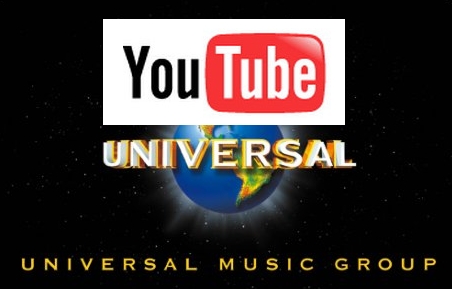
Since MTV started in 1981 with Video Killed the Radio Star, record labels have treated videos as a marketing expense. Now, with album sales plummeting, music companies aim to make them a source of profit.
That's the goal of Universal Music Group's venture with Google Inc's YouTube. Vevo.com, a new site announced last week, will stream videos from artists such as U2, Beck and the Rolling Stones. YouTube will then split advertising revenue with Universal, the world's largest music company.
The agreement is a sign of progress in the record industry's efforts to make money from YouTube, the biggest online video service. Internet ads could help the labels rebound from a 45 percent plunge in US album sales since 2000, according to Nielsen SoundScan. Working with YouTube also may let the industry rein in the wild-west nature of online music.
"As an industry or a company, we have to figure out how to derive some sort of revenue from the consumption of music, whether or not people buy it," said Rio Caraeff, executive vice-president of Universal Music's ELabs, which handles its e- commerce strategy.
Over dinner earlier this year in Paris, U2 singer Bono urged Universal Music Chairman Doug Morris to get in touch with Google Chief Executive Officer Eric Schmidt about working together, according to a person with knowledge of the talks.
Giving it away
The revenue-sharing plan is a shift from the 1980s and 1990s, when videos from artists such as Bon Jovi, Madonna and 'N Sync were given free to MTV for marketing purposes. With album sales falling, music stores closing and MTV moving to a reality-television format, videos need to start paying for themselves.
New York-based Universal, owned by France's Vivendi SA, says its videos have been watched on YouTube more than 3.6 billion times.
"The video used to be just a cost center," Jean-Bernard Levy, CEO of Vivendi, said in an interview last month. "We used to do lots of great artistic videos that we gave away to MTV and other people for free. We didn't get paid. Now it's becoming a profit center."
Universal and Google executives are asking the other major record labels to join their partnership. That includes Sony Music Entertainment, EMI Group Ltd and Warner Music Group Corp.
Jeanne Meyer, a spokeswoman for EMI, said talks with YouTube are at a "very early stage." Warner Music's Will Tanous declined to comment on the discussions. Claire von Schilling, a Sony spokeswoman, didn't return a call seeking comment.
"High hopes"
YouTube also needs new ways to make money. The business will lose $470 million in 2009, according to Credit Suisse estimates. A deal with Universal could be a model for agreements with other content providers, allowing the website to charge premium ad rates for professionally made clips.
"We have high hopes we're creating a sustainable, profitable business model," David Eun, vice-president of strategic partnerships at Mountain View, California-based Google, said on a conference call last week.
YouTube, famous for the low-budget videos posted by its users, is trying to add more premium content. Of the top 100 most-viewed video producers on YouTube, 39 are from musicians and labels, according to David Burch, a marketing manager with the video-tracking firm TubeMogul Inc in Emeryville, California.
Lingering disputes
Still, Google's deal with Universal doesn't resolve YouTube's problems with other content providers. Warner Music Group, the first label to strike a deal with YouTube in 2006, pulled its videos in December when a new licensing agreement couldn't be reached.
Disputes with artists in the UK and Germany forced clips in those countries to be pulled. Viacom Inc, controlled by Sumner Redstone, is suing Google for allegedly not removing copyrighted material from YouTube.
"Historically, every new medium has required that this kind of battle happen," said Aram Sinnreich, an analyst with Los Angeles-based Radar Research.
The negotiations are complicated by the lessons of MTV. As CD sales fell, it became apparent that the decision to allow videos to air on the cable channel without payment was a mistake, said Steve Gordon, a New York attorney. The author of "The Future of the Music Business," Gordon specializes in music licensing.
Record labels also have viewed radio as a marketing expense, something that may be changing. Universal Music, Sony and Warner are lobbying lawmakers in Washington to make radio stations pay royalties for playing their songs. The effort could cost broadcasters an estimated $2 billion or more.
"They learned something from the MTV experience, but perhaps they learned it too well," Gordon said in an interview. "Instead of giving something away for free, now they are charging too much."
Vevo will try to attract advertising dollars by creating a one-stop portal for videos. In addition to videos, users will be able to purchase digital tracks and merchandise.
(China Daily/Agencies, April 16, 2009)